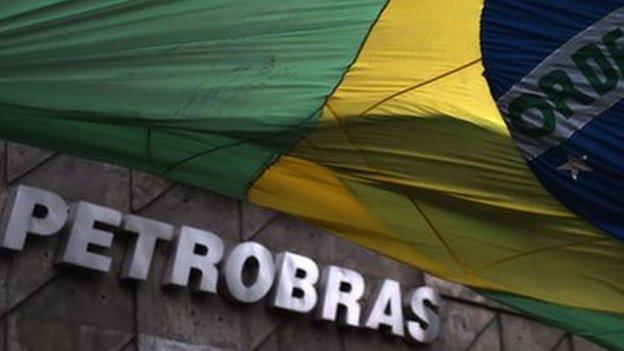Brazil's continuing corruption problem
- Published
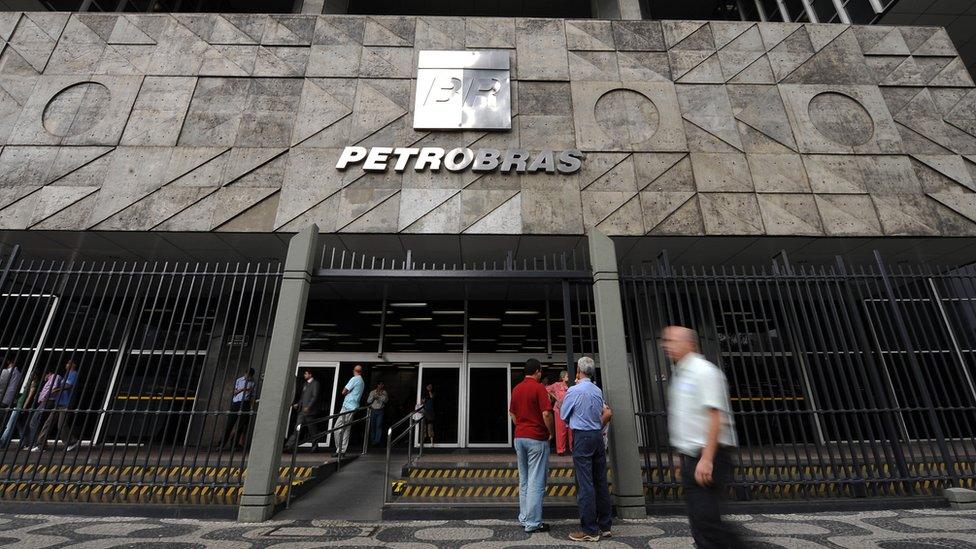
Petrobras has seen a sharp fall from grace
When Petrobras was named the most ethical global oil and gas company in 2008, few would have imagined that the company would now find itself at the centre of the biggest corruption investigation in Brazilian history.
But a criminal probe is indeed continuing into alleged corruption at Brazil's largest business.
A number of directors at state-run Petrobras are accused of taking bribes from construction companies, in return for awarding them lucrative contracts.
Public prosecutors and federal police claim that bribes of up to 5% of contract values were being skimmed off.
And it is further alleged that some of these funds were funnelled to officials in the ruling coalition of the Workers' Party and Brazilian Democratic Movement Party.
In the wake of the continuing investigation, the federal prosecutor's office has launched a three-month, economy-wide anti-corruption campaign, including increased punishments for those found guilty, and improvements to the recovery of the proceeds of crime.
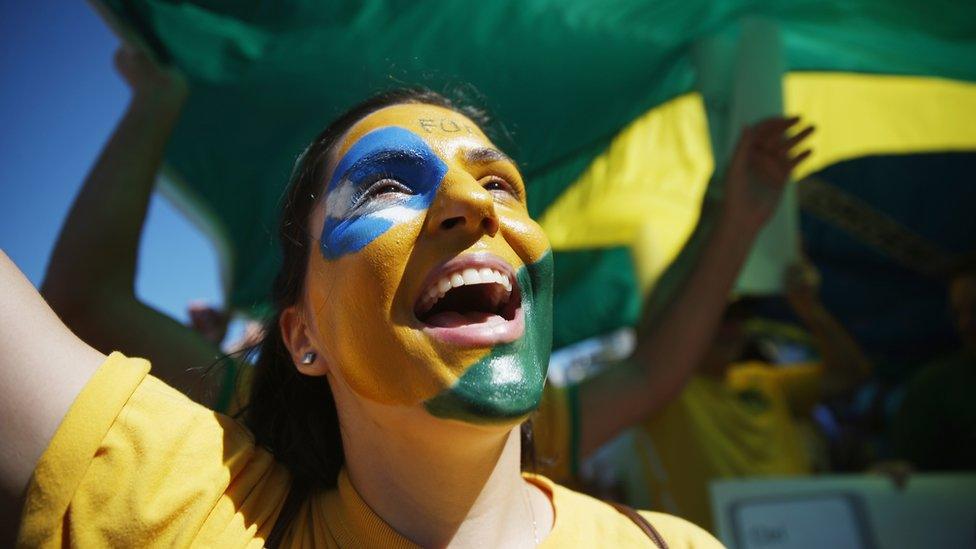
Brazilians have taken to the streets this year to protest against corruption in the country
But as the Petrobras scandal continues to dominate the headlines in Brazil, how much of a corruption problem does the country have?
'Preach and act'
The Petrobras investigation, named Operation Lava Jato (or Car Wash in English), may be the biggest corruption probe in Brazil's history, but it is far from the first.
Instead for many commentators, corruption is endemic and institutionalised in Brazil.
Take the case of former billionaire Eike Batista, once the richest man in the country.
He fell from grace last year after his energy, mining and shipbuilding empire collapsed, and he was charged with insider trading and market manipulation, charges he denies.

Last summer's World Cup in Brazil is also being investigated by anti-corruption officials
Standing trial this year, the case was suspended back in February after the presiding judge - who had ordered the seizure of 1.5bn reals ($388m; £252m) of the businessman's assets - was found to be driving one of Mr Batista's luxury cars.
Separately, Mr Batista, 58, who was once worth as much as $30bn (£20bn), was fined 1.4m Brazilian reals in March by regulators for failing to alert investors about the imminent takeover of his EBX Group.
Meanwhile, both Brazilian investigators, and the US's FBI, are continuing to investigate allegations of corruption at last year's World Cup in Brazil.
"Unfortunately, despite the importance and the recurrence of the subject, ethics is not yet in fact valued by a large number of companies operating in Brazil," says Douglas Linhares Flinto, founder and president of the Brazilian Institute of Business Ethics.
A non-profit pressure group, it was set up back in 2003.
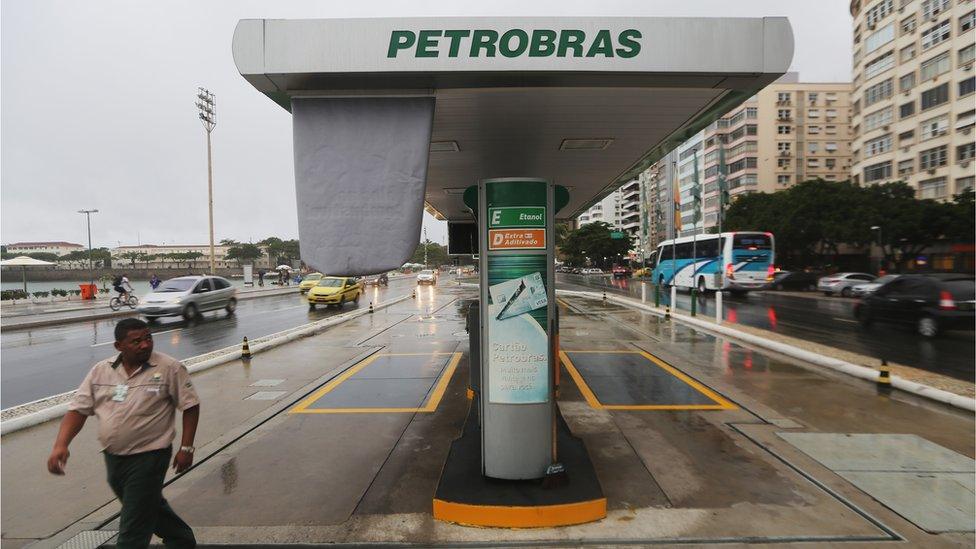
State-owned Petrobras is Brazil's largest company
Mr Flinto adds: "Many businesses can talk about ethics, and even highlight it in the list of the company's values hung on the wall and emphasized on the website.
"However, corporate actions prove that ethics is not a value to be pursued and used on a daily basis.
"And this is the biggest problem of the business world - the inconsistency in which many companies preach and act."
'Mitigate risk'
One of the factors behind prevalent corruption in Brazil is the high level of bureaucracy in the country, according to Transparency International, the global organisation that monitors the problem.
It says that companies in Brazil face a number of regulatory hurdles to do business, which opens up opportunities for bribery.
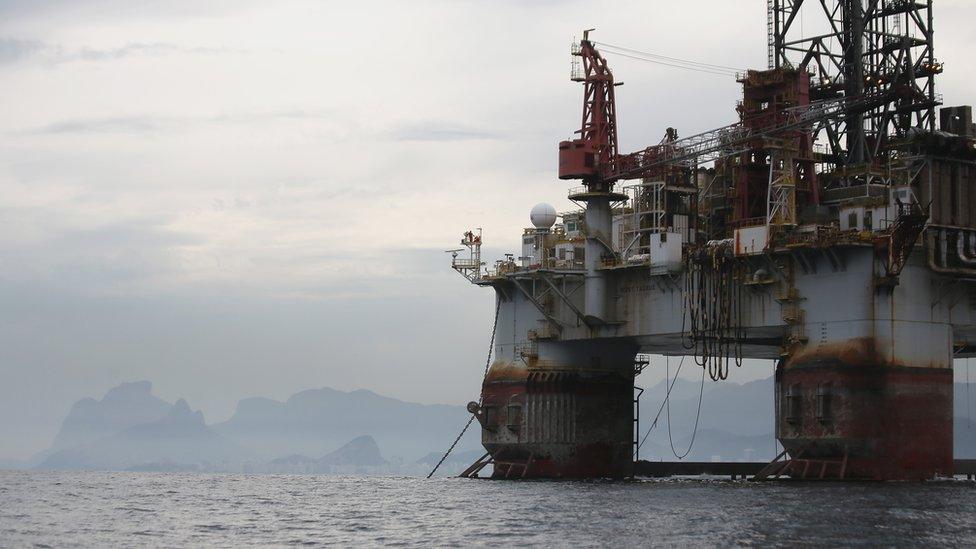
Petrobras has not been helped in recent years by the big fall in oil and commodity prices
Separately, a 2009 survey by the World Bank Group found that almost 70% of Brazilian business owners and managers said corruption was a major obstacle.
Yet despite such findings, the Brazilian government says it is working hard to tackle the issue.
It points to a new Anti-Corruption Law that came into force last year, and highlights the continuing investigations into Petrobras and Mr Batista as a sign of the renewed efforts.
Inspired by the new law, a think tank called the Brazil Compliance Institute was set up last December by lawyer Sylvia Urquiza.
It aims to promote best practice and help companies meet their duties under the new regulations, and has been backed by the International Business School of Sao Paulo and Candido Mendes University.
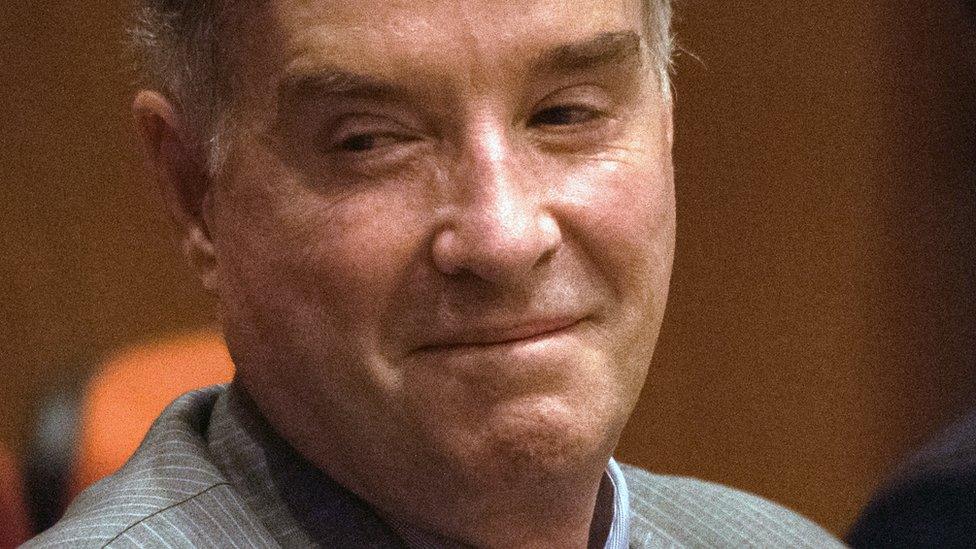
Eike Batista has denied any wrongdoing
Google's compliance director, Camila von Ancken, and Ana Leao, compliance manager at global drinks giant Diageo are among the experts who have worked with the institute.
Mrs Urquiza says: "Managers' accountability for irregularities committed in the name of the company, attitudes that can mitigate punishment, suggestions of good practices... are some of the points that the institute clarifies.
"[We do this] through workshops, lectures and meetings."
Petrobras has also increased efforts to prevent misconduct, and late last year issued a new code of conduct.
It has also developed ethics courses for staff, as well as introducing more stringent controls on the management of suppliers.
A Petrobras spokeswoman says: "[Supplier] companies must provide detailed information on structure, finance and compliance mechanisms and combating fraud and corruption, among other things, being evaluated by the process known as Due Diligence of Integrity.
"The aim is to increase safety on the procurement of goods and services and mitigate risks related to fraud and corrupt practices."
Back at the Brazilian Institute of Business Ethics, Mr Flinto says that despite the recent controversies, he is hopeful that the country may now be changing for the better, and that the recent high profile scandals will lead to better standards in the future.
"All this is turning a page in the history of my country and, more than that, it will be a milestone in the improvement of ethical standards of government and companies, and an entire society that can, in a short time, reach the strict standards of more developed nations," he says.
"I am convinced that ethics is coming to Brazil to stay. Brazil will never be the same."
- Published14 August 2015
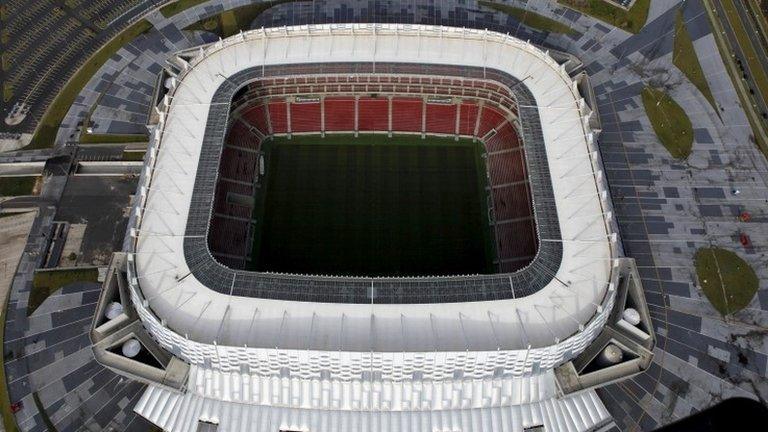
- Published6 August 2015
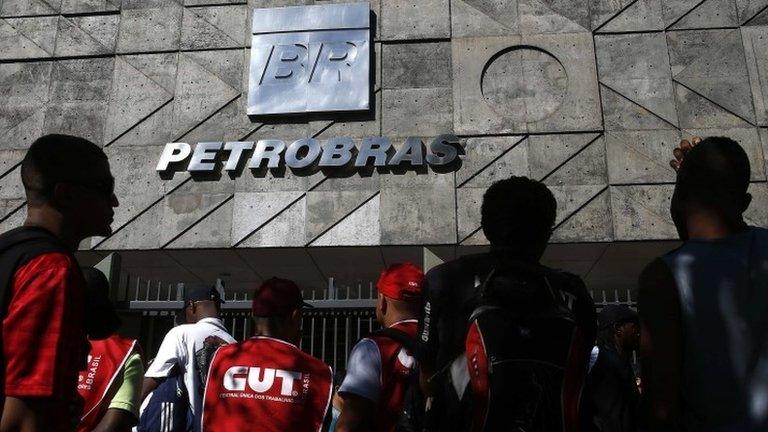
- Published19 June 2015
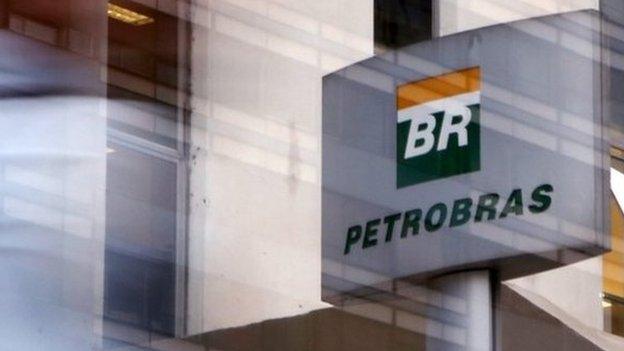
- Published15 July 2015
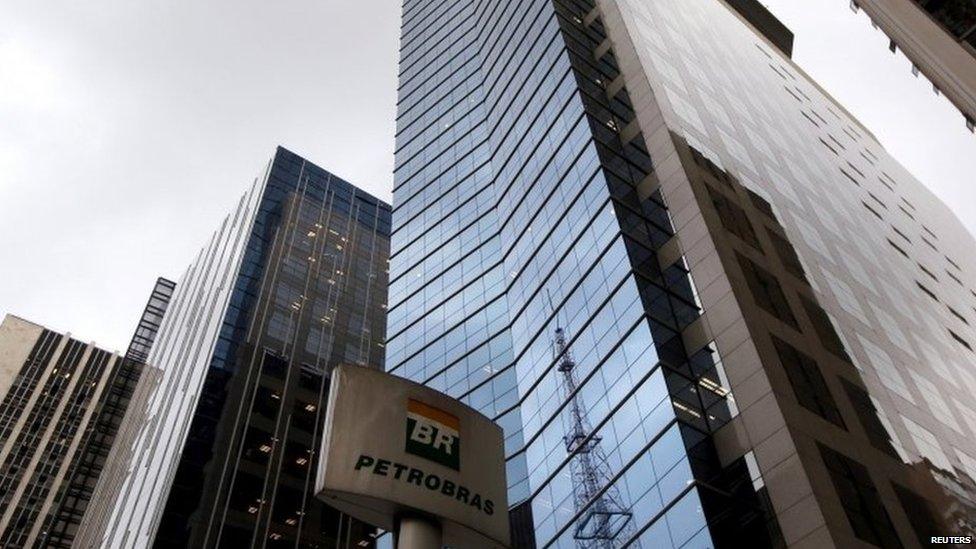
- Published23 April 2015
